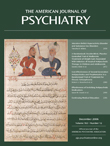Joan Didion’s, The Year of Magical Thinking, is an intensely personal memoir of her nearly 40 years of marriage to husband John Gregory Dunne and life with their only child Quintana. She begins writing her story 9 months and 5 days after her husband has died suddenly of a massive coronary the night before New Year’s Eve 2003. On Christmas of that same year their daughter had been admitted to the hospital with pneumonia that progressed to septic shock to coma, and she was put on life support. They had just returned from visiting her when John Dunne collapsed at the dinner table. Didion writes in the first chapter, introducing the themes she expresses throughout:
This is my attempt to make sense of the period that followed, weeks and then months that cut loose any fixed idea I had ever had about death, about illness, about probability and luck, about good fortune and bad, about marriage and children and memory, about grief, about the ways in which people do and do not deal with the fact that life ends, about the shallowness of sanity, about life itself. (p. 7)
Details follow with which anyone who has experienced an intimate loss will recognize: the shock that comes again and again from realizing that the person you love is no longer there and the intense sense of aloneness that follows, the desire to share something that can no longer be shared, the avoidance of places and experiences once enjoyed together, the need to lash out at something when there is often nothing and no one to blame. To help alleviate her grief she turns to literature—C.S. Lewis, Thomas Mann, Matthew Arnold, W.H. Auden. To help understand her grief she reads medical journal articles, psychiatric and psychological texts, Institute of Medicine reports, self-help books, even Emily Post’s 1922 book on etiquette. She questions all of her actions and inactions, revisits every “mistake.”
When the narrative turns to her daughter’s illness Didion feels even more helpless. A mother is supposed to protect her child, make everything better. “You’re safe. I’m here.” To cope, Didion studies every technical aspect of Quintana’s illness. She finds herself giving advice to the doctors and is frustrated and angered by their inability to listen, to reach a consensus on treatment, or to pay attention to her as the parent of a child in distress. She finds both solace and pain in memory. The uncertain outcome of her daughter’s illness makes hope elusive.
One theme that Didion does not mention in her introduction but does come to realize as she recollects is her husband’s apparent depression. Diagnosed in 1987 with a 90% occlusion of the left decending artery that his doctor told him was called “the widow maker” and with the knowledge that his father had died at an early age from heart disease, John Dunne seems not to have received psychiatric treatment despite having been diagnosed with a potentially life-threatening hereditary condition of which he was already showing symptoms. At least there is no mention of such treatment in the book. The premonitions of death that he speaks of to his wife in the months before he dies may have been present all along.
The major shortcoming of the book is its length. I found much digression, reaching into the distant past for meaning, citing people, circumstances, and conversations far too peripheral to the poignant message Didion has to offer. A shorter narrative would have been more powerful, as was Calvin Trillin’s essay “Our Alice” (1). (Trillin spoke at John Dunne’s funeral.) Perhaps she began writing this book too soon after her husband’s death and daughter’s illness to distinguish between the meaningful and mundane. Perhaps she wrote this more for herself than for her readers. She seems to acknowledge this in the last, and in my opinion, best chapter. “I realize as I write this that I do not want to finish this account. Nor do I want to finish the year. The craziness is receding but no clarity is taking its place. I look for resolution and find none” (pp. 224-225).
If the reader skims over details that to Didion are precious but that to many may seem like clutter, there is much here on which to reflect. Not least of which is that her thinking is not magical at all, but rather is the reaction of a gifted observer of the ordinary who found herself in extraordinary circumstances.

